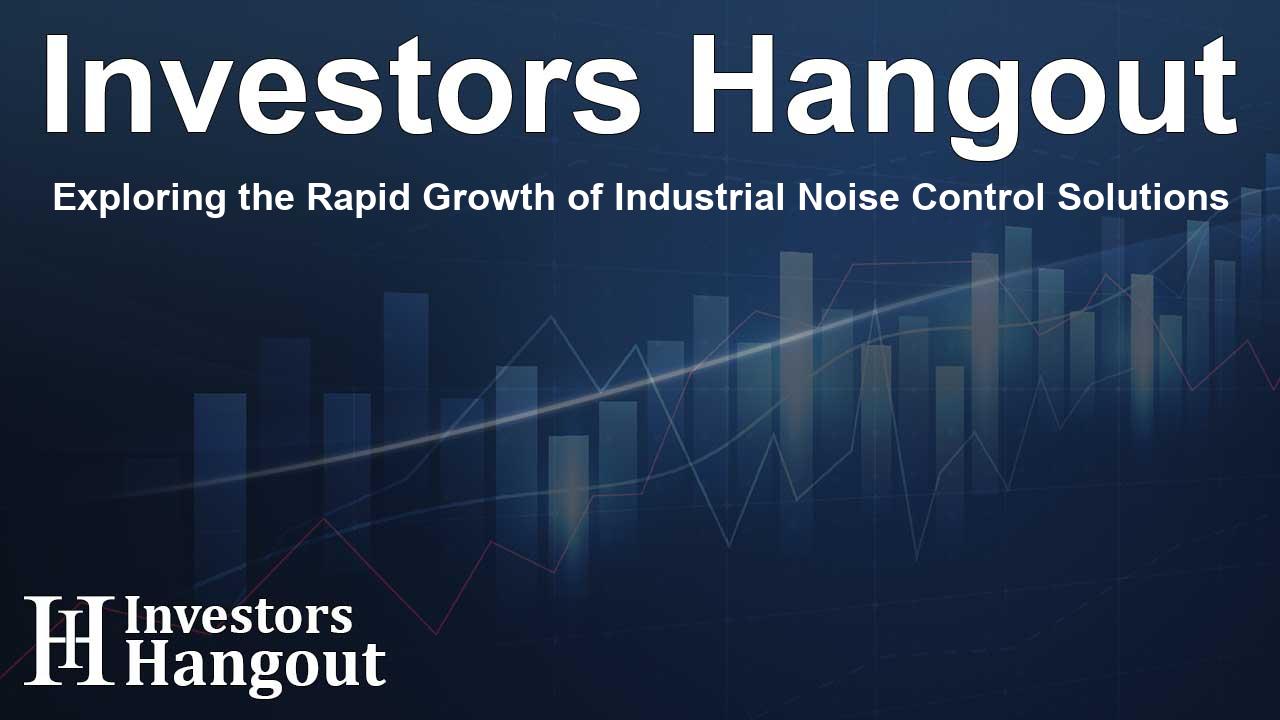Exploring the Rapid Growth of Industrial Noise Control Solutions

Understanding Industrial Noise Control Systems
In today's world, the Industrial Noise Control System market is gaining substantial traction, with projections indicating an impressive growth trajectory. The increasing number of investments in infrastructure and manufacturing sectors has generated a heightened need for effective noise control solutions. These systems ensure the well-being and safety of workers while also complying with regional regulatory standards. Furthermore, the surge in industrial noise control solutions is driven by the need to meet environmental standards and improve working conditions across various industries.
Market Overview and Growth Prospects
The recent analysis unveils that the industrial noise control systems market is expected to reach a remarkable value by the end of the forecast period. The influx of foreign direct investment into different manufacturing sectors is a significant contributor, indicating a growing recognition of the importance of noise management in workplaces. With countries making strides toward enhancing industrial environments, the demand for noise control systems is projected to expand tremendously worldwide.
The Crucial Role of Noise Control Systems
As industries evolve, the necessity for adopting noise control measures has become even clearer. Manufacturing environments are essential for driving economies forward, yet they also present new challenges related to noise pollution. Governments across regions are implementing stricter regulations to combat excessive noise, highlighting the urgency for industries to adapt. Companies are finding standardized noise reduction solutions that can be effectively utilized on an international scale.
Challenges and Regulatory Framework
A major challenge that the industrial sector faces today is the management of noise pollution, which adversely affects the quality of life and working conditions. With the European Commission spearheading initiatives like the Zero Pollution Action Plan, there’s an increasing emphasis on reducing harmful noise levels across industries. Countries are taking legislative actions to regulate noise levels, pushing manufacturers to innovate and ensure their equipment meets standards set for acceptable noise levels.
Innovative Technologies Shaping the Future
On the technological front, companies are leveraging advancements in AI and IoT to develop sophisticated noise reduction systems. Recent innovations, such as the Noise Monitoring Solution by Disrupt-X and the active noise reduction technologies introduced by other manufacturers, showcase the remarkable potential for improved industrial safety. These technological breakthroughs allow businesses to monitor and manage noise levels effectively, creating healthier work environments.
Investment Trends and Economic Impact
Investment in the industrial sectors is on the rise, with notable capital allocations directed toward noise control systems. Countries such as Thailand are prioritizing investments in renewable energies, advanced manufacturing, and other integral sectors, all of which require effective noise management strategies. For instance, large-scale projects like electric vehicle manufacturing facilities are designed with noise control in mind, enhancing both productivity and worker safety.
Expert Insights on Future Growth
The competitive landscape of the industrial noise control systems market is marked by the presence of various key players. These companies are employing strategies such as product innovations, joint ventures, and geographic expansions to enhance their market stances. The collective investment in R&D has drastically increased the variety of available solutions, from acoustical wall panels to advanced sound enclosures.
Conclusion: Navigating Future Opportunities
The industrial noise control system market is poised for significant growth, fueled by continuous investments in technology and infrastructure. As industries evolve and adapt to newer regulations, the demand for effective noise management solutions will undoubtedly rise. Stakeholders stand to benefit from comprehensive insights that can guide them through this dynamic market landscape, unlocking new opportunities for growth and innovation.
Frequently Asked Questions
What are industrial noise control systems?
Industrial noise control systems are solutions designed to mitigate noise pollution in industrial environments, ensuring compliance with safety regulations.
Why is noise control important in industries?
Noise control is crucial for protecting worker health and safety, enhancing overall productivity, and meeting regulatory requirements.
What are some key technologies in noise control systems?
Key technologies include sound barriers, acoustical wall panels, and IoT-based noise monitoring solutions that actively manage sound levels.
How is the market for industrial noise control systems growing?
The market is expanding due to increased investments in manufacturing and stringent regulations aimed at noise pollution reduction.
What is the future outlook for industrial noise control systems?
The future outlook is positive, with continued innovation and expanding applications expected to drive demand through the next decade.
About The Author
Contact Thomas Cooper privately here. Or send an email with ATTN: Thomas Cooper as the subject to contact@investorshangout.com.
About Investors Hangout
Investors Hangout is a leading online stock forum for financial discussion and learning, offering a wide range of free tools and resources. It draws in traders of all levels, who exchange market knowledge, investigate trading tactics, and keep an eye on industry developments in real time. Featuring financial articles, stock message boards, quotes, charts, company profiles, and live news updates. Through cooperative learning and a wealth of informational resources, it helps users from novices creating their first portfolios to experts honing their techniques. Join Investors Hangout today: https://investorshangout.com/
The content of this article is based on factual, publicly available information and does not represent legal, financial, or investment advice. Investors Hangout does not offer financial advice, and the author is not a licensed financial advisor. Consult a qualified advisor before making any financial or investment decisions based on this article. This article should not be considered advice to purchase, sell, or hold any securities or other investments. If any of the material provided here is inaccurate, please contact us for corrections.
